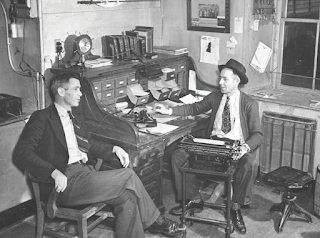Perhaps there’s no more heartbreaking story of rejection than that of John Kennedy Toole, the author of A Confederacy of Dunces. In 1969, three years after Simon & Schuster rejected the novel, Toole became so despondent that he committed suicide.
Toole’s grief-stricken, yet incredibly determined mother asked everyone she could think of to read the book. Seven years of rejections later, she got it into the hands of novelist and professor Walker Percy. How could he say no to this poor woman with her deceased son’s unpublished manuscript? With great dread, Percy began reading the book, hoping it would be so horrible that he could discard it after reading a few pages.
It didn’t take him long to realize the book was so good he was going to have to read the entire manuscript. Halfway through the book he knew he was holding a novel of immense value. Although the content in the manuscript wouldn’t win any Christian awards, A Confederacy of Dunces went on to win a Pulitzer Prize, selling more than 1.5 million copies in 18 languages. Imagine the books Toole might have written if he had the same determination as his mother.
Rejection is a part of life. Everyone is going to be rejected in one way or another, so we need to learn how to deal with it. Every successful author had their manuscript rejected many times by publishers before someone finally recognized the person’s gift. Every successful athlete had to overcome losing in order to get better.
Rejection can be devastating, so that’s why we need to see it from God’s point of view. Man’s rejection can be God’s PROTECTION. Sometimes the Lord is saying, “I’m closing this door because this isn’t My will for you.” He’s protecting you from harm that you can’t see at the present time.
Rejection can also be God’s DIRECTION. God’s hand is diverting you to a new and better place that you wouldn’t have thought about on your own. Other rejections are designed to increase your determination through faith and persistence, like the Canaanite woman who wouldn’t quit (Matt. 21:22-28). Under no circumstances are you to let rejection defeat you or keep you from reaching your full potential, like it did with John Kennedy Toole. www.kentcrockett.blogspot.com www.makinglifecount.net
Start 2026 with a 365-daily devotional: Amazing Stories & Daily Devotionals ($14.99) MORE Amazing Stories & Daily Devotionals ($14.99)

















